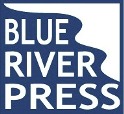Creative Minds
A Regular Column by Anthony D. Fredericks
More Curiosity = More Creativity
 As children we are innately curious. Our thinking is unfettered and our horizons are limitless. We are willing to explore our world without boundaries, without restraints. But, as we mature, our upbringing, our education, and our workplaces force us to become logical, pragmatic, factual, and…well, considerably less curious. Knowing the answers, rather than asking the questions, becomes the priority. Know lots of “stuff” and you can get good grades, get a good job, and have a good life.
As children we are innately curious. Our thinking is unfettered and our horizons are limitless. We are willing to explore our world without boundaries, without restraints. But, as we mature, our upbringing, our education, and our workplaces force us to become logical, pragmatic, factual, and…well, considerably less curious. Knowing the answers, rather than asking the questions, becomes the priority. Know lots of “stuff” and you can get good grades, get a good job, and have a good life.
Unfortunately, we have never been taught how to take advantage of our curiosity instincts. True, we were curious as kids, but we grow increasingly less so as we progress through our lives. Imbued with that “curiosity gene,” we are seldom given instruction as to how to take advantage of its powers for lifelong growth and profit. It is one of those traits we often appreciate in youngsters, but seldom embrace in our own lives.
It was Albert Einstein who famously said, “I have no special talents. I am only passionately curious.” He also went on to say, “The important thing is not to stop questioning. Curiosity has its own reason for existing.” For Einstein, curiosity was the engine that drove his creativity. Curiosity is the catalyst for questioning and questioning is what propels us to seek out the unfamiliar and the unknown. Curiosity is the fuel necessary for creativity to prosper and succeed. For, without questions, knowledge becomes stagnant and immovable. It does not move forward, nor does it have sufficient power to poke and peek and prod what may lie just below the surface or just slightly out of reach.
One research study in 2017 tested the link between curiosity and creative problem-solving. What the researchers discovered, not surprisingly, was that general curiosity had a significant impact on the quality and originality of creative performance outcomes, even after accounting for differences in personality among the participants. The implication was that constant questioning (active curiosity) creates a constant state of mental activity that moves us beyond a tendency for us to rely on what we already know. In other words, we often assume that our knowledge about a work-related topic is above average and we are, therefore, not incentivized to move beyond that “box.” Questions, on the other hand, stimulate us to look beyond, to look in new places, and to look past “comfortable” knowledge. In short, the more curious we are, the more creative we can become.
__________________
Dr. Anthony D. Fredericks is an award-winning author of more than 170 books, including From Fizzle to Sizzle: The Hidden Forces Crushing Your Creativity and How You Can Overcome Them as well as  five other Blue River Press titles (e.g. Ace Your Teacher Interview). He also pens a regular blog for Psychology Today.com (https://www.psychologytoday.com/us/ contributors/anthony-d-fredericks-edd)
five other Blue River Press titles (e.g. Ace Your Teacher Interview). He also pens a regular blog for Psychology Today.com (https://www.psychologytoday.com/us/ contributors/anthony-d-fredericks-edd)
